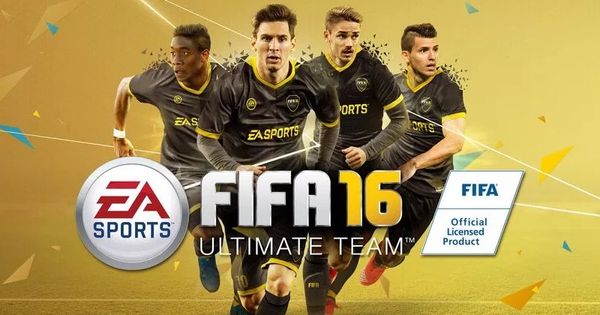FBI says FIFA Ultimate Team console game hackers stole millions in virtual currency

Modern-day criminals don’t need to steal from your wallet or even your online bank account to make themselves millions of dollars. They can also target video games, an increasing number of which have their own virtual in-game currency that can be used to buy or sell items attractive to players.
FIFA Ultimate Team, for instance, published by Electronic Arts (EA), offers FIFA coins which you can either earn through playing the game or trade with other players through the game’s transfer market – helping you to build up a strong team.
Just because you can’t touch or see FIFA coins in real life, doesn’t mean that there aren’t people who are interested in collecting more. A quick search of the internet reveals plenty of websites that are keen to sell gars FIFA Coins – and it’s no surprise to discover that the high demand for cheap FIFA coins might be something that online criminals are tempted to satisfy.
Yesterday in Fort Worth, Texas, the FBI started proceedings against Anthony Clark, having already seized his property and bank account funds of close to $3 million.
Clark and three other alleged hackers (Nicholas Castellucci, Ricky Miller and Eaton Zveare) are said to have written software that “mined” the Electronic Arts servers to fraudulently earn themselves more FIFA coins, which they then sold on to unauthorised black market sites in Europe and China, where they could then be re-sold to players for real money.
The software, according to an unsealed indictment, ran on a modified video game console, and is claimed to have duped EA’s servers into believing that thousands of soccer matches had been completed.
The four indicted men are alleged to be members of a hacking ring called RANE Developments, a group said to be associated with the XBOX Underground hacking gang that stole software and technical specifications from the likes of Microsoft, Activision, Epic Games and Valve.
Three members of XBOX Underground received prison sentences last year, while a fourth (Austin Alcala) has pleaded guilty to hacking and intellectual property theft and is co-operating with the FBI in their investigation of the alleged FIFA Ultimate Team fraud.
It may not feel the same as having your wallet stolen or your online bank account hacked, but there is clearly a significant market for FIFA Ultimate Team’s in-game currency. Even though FIFA coins aren’t “real”, EA is losing out on potential sales if hackers fraudulently generate their own copies of the in-game currency which then get sold on to players who might have bought the genuine article.
Theft, even if virtual, is still theft – and it is clear that law enforcement agencies take a dim view of it.
tags
Author
Graham Cluley is an award-winning security blogger, researcher and public speaker. He has been working in the computer security industry since the early 1990s.
View all postsRight now Top posts
How to Protect Your WhatsApp from Hackers and Scammers – 8 Key Settings and Best Practices
April 03, 2025
Outpacing Cyberthreats: Bitdefender Together with Scuderia Ferrari HP in 2025
March 12, 2025
Streamjacking Scams On YouTube Leverage CS2 Pro Player Championships to Defraud Gamers
February 20, 2025
How to Identify and Protect Yourself from Gaming Laptop Scams
February 11, 2025
FOLLOW US ON SOCIAL MEDIA
You might also like
Bookmarks








